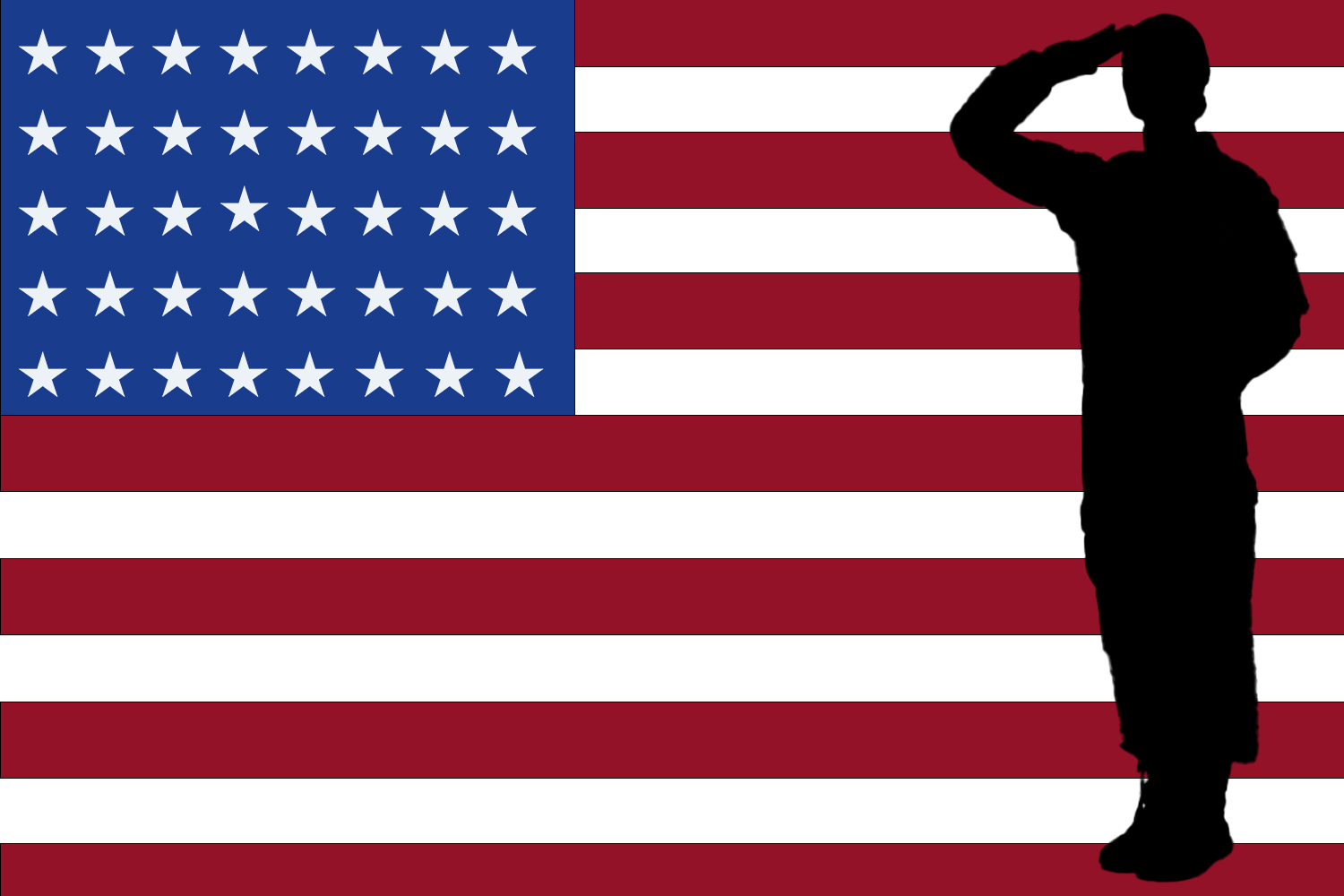The weight of war doesn’t lift with the final pull of a trigger. It doesn’t lift with the ceremonial slip of paper declaring a soldier’s “Honorable Discharge.” It doesn’t even lift the moment a soldier drops their government-issued bags in their doorway, when the action is far behind them. Because, sometimes, the return home is when the weight of war is heaviest.
It is a common mistake to think that the only difficult aspect of being a combat veteran is either the act of fighting for the nation or the recovery from the trauma induced by the former; this conception neglects a critical chapter of the story. Perhaps one of the most overlooked struggles for veterans is the transition from active duty to civilian life.
Rich Rodriguez, English Language coordinator for the Millbrae Elementary School District, joined the United States Army when he was 37-years-old, following in the footsteps of other men in his family. He joined the Infantry but eventually served as a member of the Army Reserves.
“I think one of the biggest challenges veterans face is moving from an operational environment to a civilian environment. We all have 24 hours and when you’re in the service, the majority of that time is allocated and resourced for operations and doing your job,” Rodriguez said. “On the civilian side…you have more time to dictate what your routine is going to look like. Part of the biggest challenge is adjusting to the different time.”
The U.S. Army maintains a rigid system of operations on all levels. Both the command structure and day-to-day life of soldiers are delicately nuanced and organized to maintain order. The contrast between active duty and civilian life is stark in this sense.
“There’s a lot more looseness. How do you fill that time? That was a hard time for me, primarily because I was dealing with some issues of trauma and loss,” Rodriguez said.
Following one’s discharge from the service, veterans become part of an organization known as the Veterans Administration (VA). This organization offers services that range from disability claims to housing assistance to vocational rehabilitation.
“Access is a big issue for a lot of veterans…resources are available but there are processes you have to apply for that do take some time,” Rodriguez said.
According to a study conducted by Pew Research, 73% of post-9/11 veterans have received benefits from the VA, though 43% say that the government has given them less help than it should have.
There can be issues that come with the services offered by the government that make it harder for veterans to actualize their entitled benefits. For example, the Special Compensation for Assistance with Activities of Daily Living (SCAADL) program only covers severely injured or ill current service members but excludes others with a less severe service-connected disability or nonservice-connected disabilities.
It can also be hard to receive help when one’s condition is not formally diagnosed. In order to receive a formal diagnosis for post-traumatic stress disorder (PTSD) and the according government benefits, the VA says, “You may be eligible for disability compensation if you have symptoms related to a traumatic event (the “stressor”) or your experience with the stressor is related to the PTSD symptoms, and you meet both of these requirements…[The VA considers a traumatic event by one or both of the following] you suffered a serious injury, personal or sexual trauma, or sexual, or someone or something threatened you with injury, sexual assault, or death.”
The requisites required to qualify for PTSD services and compensations may leave out veterans who suffer a more ambiguous trauma.
“It’s true – I do not have PTSD in the way it is traditionally defined. I did not suffer a trauma – that is, a specific occurrence of trauma, during my combat deployment,” said Patrick Mondaca in his 2017 piece for the Washington Post. “A soldier, however, may be traumatized by the entire wartime experience – by remaining in a continuous state of hyper-alertness and adrenaline. This theater of war rewires and reconditions the minds of returning soldiers.”
The lack of formal diagnosis in a soldier for psychological and physiological ailments makes it that much harder for them to obtain the help that they need.
According to Volume 71, Issue 7 of the Psychiatric Services medical journal, additional barriers to veterans accessing health care include: “…lack of transportation, family or work obligations, and limited child care options. Help-seeking stigma has likely contributed to veterans underusing mental health care. Some veterans also report being confused about their eligibility as a reason for not using VA programs.”
“Your battle buddies are your first go-to. When you leave, you lose that network. In the civilian world, you have to re-establish that; you need to take it one step at a time,” Rodriguez said. “It is challenging because there are a lot of things that happen in the service…where people need support because obviously it’s a hard job and sometimes you see things…that most people do not, so, therefore, it’s kind of hard to talk about.”
Organizations such as the American Legion are dedicated to supporting veterans through establishing a network and community of fellow service members. Since its establishment in 1919, the American Legion has expanded to over 13,000 posts across the United States and selected territories. The organization offers career, health, and financial services, among others, to aid in the transition out of active duty.
“I did reach out to my local VA and I am part of the American Legion. Those veterans groups have been instrumental especially when they are local. I find that they were able to help me…adjust back to civilian life,” Rodriguez said. “We do need help and support because those are things that we have to ultimately address.”
At the end of the day, the transition from active duty to civilian life is bound to have its challenges. One of the most integral tools to smoothing that transition lies within the home itself. We do need help and support because those are things that we have to ultimately address — Rich Rodriguez
“The support of my family was…critical. They go along with us even though they’re here at home. When we come back they are there and provide that closeness to reintegrate us. Family and family support is vital to any service member.”
Serving the country, especially in combat, has its advantages; there are valuable skills and lessons to be gleaned. With the good comes the bad. Trauma, both physical and mental, can change a veteran forever. And though the government may work to remedy the negative side effects, Rodriguez points to perhaps one of the most valuable implements regarding a return to civilian life: “Your family may not understand what you’re going through but they are there for you during that transition.”




